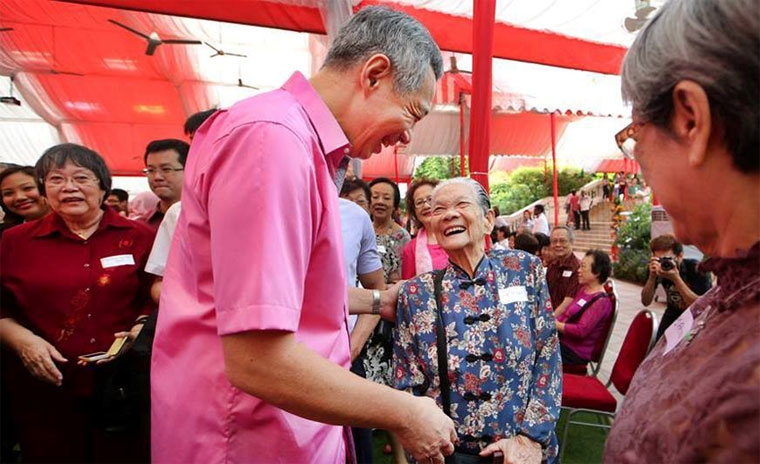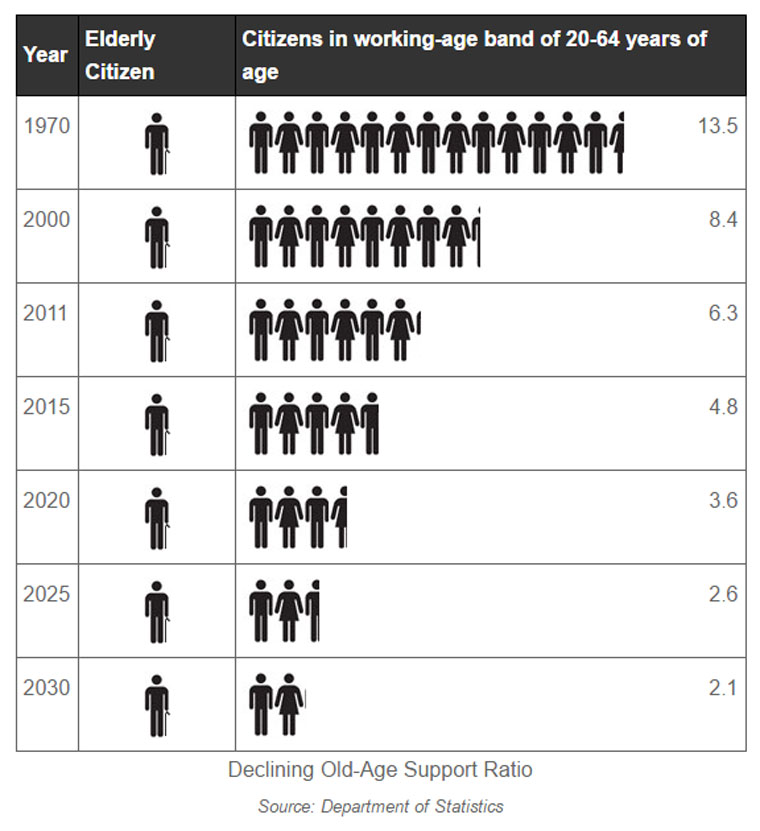The New York Times recently carried an article, "Aging, but Still Working, in Singapore", on June 7, 2016, about Singapore's working old.
The sight of elderly Singaporeans of retirement age continuing to work in food centres as cleaning staff or drive taxis into their twilight years is never a pretty sight.
And the reasons why they do so are varied: They want to escape loneliness, continue to contribute to society and do not want to burden family members.
Some, obviously, have no choice but to support themselves.
This topic about Singapore's rapidly ageing population is not new though: Prime Minister Lee Hsien Loong addressed it in a lecture in July last year, when he spoke at the seventh annual Ho Rih Kwa lecture organised by the Singapore Management University (SMU).
From the looks of it, according to PM Lee, Singapore is set to undergo some drastic demographic changes:
"Based on trends, if we project into 2050, even with immigration, the population pyramid will be inverted... We are going to be growing old faster than any society in the world."
The perennial questions are: Who will pay the taxes when there are fewer people working? Who will serve in the Singapore army?
Who will staff the MNCs and who will take care of those residing in hospitals?
Because here are the sobering facts:
- In 50 years, Singapore’s population has grown from 1.9 million to 5.5 million between 1965 and 2015.
- Population growth is slowing.
- The number of citizens aged 65 and above is increasing rapidly. It doubled from 220,000 in 2000 to 440,000 in 2015.
- The number of citizens aged 65 and above is expected to increase to 900,000 by 2030.
- In 2014, the total population in Singapore grew by 1.3 percent, its slowest pace since 2005.
- The number of working-age citizens peaked at about 2.2 million.
- By 2019, more than a third of the population will be over 50.
- At current birth rates and without immigration, the median age of our citizens will rise to 47 in 2030 from 39 in 2011.
- And by 2050, the median age will be 54.
- Singapore’s life expectancy has increased by 10 years over the last 30 years, from 72 years in 1980 to 82 years in 2010, making it one of the highest in the world.
- Singapore citizens born before 1949 have been labelled the people of the Pioneer Generation. By 2031, odds are, a good proportion of them won't be around anymore.
Look at this table:
- In 2012, there were about 6.3 citizens in the working-ages of 20 to 64 years, for each citizen aged 65 and above.
- By 2030, there will only be 2.1 working-age citizens for each citizen aged 65 and above.
If you like what you read, follow us on Facebook and Twitter to get the latest updates.
If you like what you read, follow us on Facebook, Instagram, Twitter and Telegram to get the latest updates.

